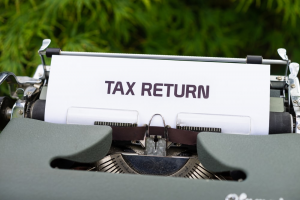Value Added Tax (VAT) is a tax charged on UK businesses for their supply of goods or services that are categorized as taxable. It’s imperative that the tax is collected by a taxable individual in the business who must have registered for VAT requirements.
VAT manifests as input tax and output tax. The former is paid by a particular individual for the supply of the goods and services pertaining to them. Output tax is charged by a business that supplies the goods and services.
What Is VAT Evasion?
VAT evasion is a form of tax fraud committed by individuals and businesses that are required to pay VAT. It’s the most common type of tax fraud carried out in the UK and has serious implications and consequences. Any party found engaging in VAT evasion may be fined civil penalties, interest, criminal charges, o
VAT evasion occurs when a VAT registered business or trader suppresses their sales or inflates their purchases, thereby failing to declare their VAT returns. This intentional non-payment and failure to declare their true liability is a criminal offence. Businesses suspected of VAT evasion are targeted by HMRC and typically comprise cash-based ventures such as laundrettes, pubs, restaurants, taxi firms, and the likes.

HMRC Penalties for VAT evasion
VAT evasion a classified as a criminal offence under section 72(1) of the Value Added Tax Act.
HMRC is the regulatory body responsible for conducting the primary investigation for VAT evasion. If you’re a suspect for VAT evasion or your case is eligible for criminal prosecution, you’re likely to face penalties under the civil evasion penalty regime. Typically, the penalty for this tax offence (VAT credits) is 100% of the amount evaded. In the case of payments and refunds, the penalty equates to the aggregate of the amount of input tax that you overstated and the amount of output tax that was understated. If you self-report the offence, you may face penalty mitigation with a reduction of up to 40% provided that you give an honest explanation for unintentional VAT evasion.
If you’re found guilty of VAT evasion, the Crown Court can issue you an unlimited fine and up to 7 years of imprisonment. Additionally, you may also be charged under the Fraud Act of 2006.
Are you being investigated for a potential VAT evasion case? Our criminal defence solicitors at AM International Solicitors can help you with VAT offences and excise duty assessments.
Get in touch with our criminal defence solicitors today!
r default surcharges.


